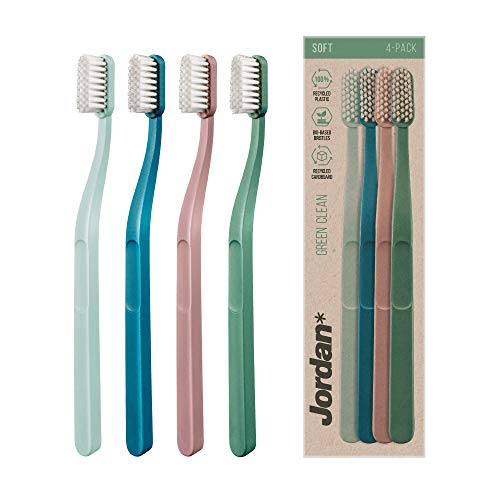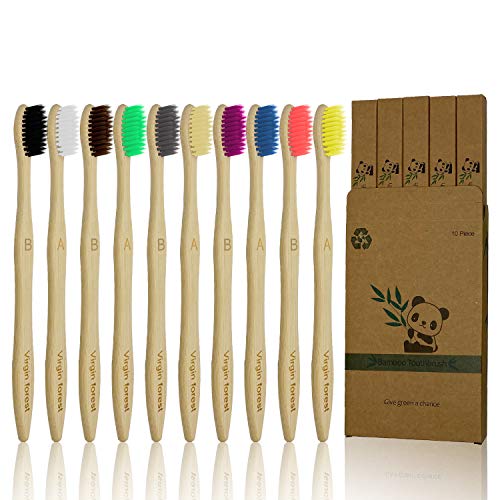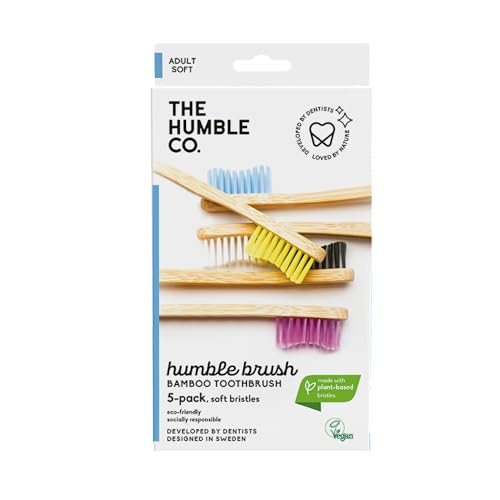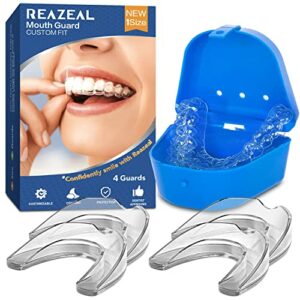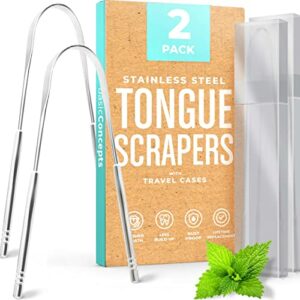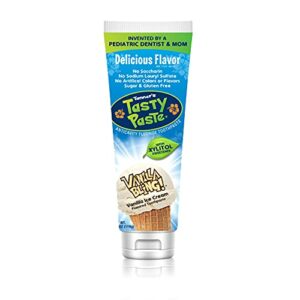We know how important it is to make eco-friendly choices in our everyday lives. From reusable shopping bags to energy-efficient appliances, we strive to do our part in protecting the environment. One area that often goes unnoticed is our oral hygiene routine. Have you ever wondered if your eco toothbrush can be recycled? We understand the confusion and concern surrounding this topic. That’s why in this post, we will explore the recyclability of eco toothbrushes and provide you with the information you need to make an informed decision. Let’s embark on this journey together and discover the truth behind recycling eco toothbrushes.
Switch to Sustainable Oral Care with Our Bestselling Eco-Friendly Toothbrushes
What are eco toothbrushes?
In recent years, eco toothbrushes have become increasingly popular as people become more conscious of the impact their daily choices have on the environment. These toothbrushes are designed to be more sustainable and reduce the amount of plastic waste that ends up in landfills and oceans. In this blog section, we will delve into what eco toothbrushes are and why they are gaining traction among eco-conscious individuals.
Materials
Eco toothbrushes are typically made from sustainable and biodegradable materials, unlike traditional plastic toothbrushes. Some common materials used include:
- Bamboo: Bamboo is a popular choice for eco toothbrushes due to its rapid growth and renewable nature. It is also naturally antimicrobial, making it an excellent alternative to plastic handles.
- Cornstarch: Some eco toothbrushes feature handles made from cornstarch-based plastics. These biodegradable materials are derived from renewable resources and have a lower environmental impact compared to traditional plastics.
Manufacturing Process
The manufacturing process of eco toothbrushes is also more environmentally friendly compared to traditional toothbrushes. Here’s a brief overview of the process:
- Sourcing Sustainable Materials: Manufacturers carefully select sustainable materials like bamboo or cornstarch-based plastics from renewable sources.
- Handle Production: The materials are then shaped and crafted into toothbrush handles using eco-friendly production methods.
- Bristles: While the handles of eco toothbrushes are typically made from sustainable materials, the bristles often still contain some form of plastic. However, some eco toothbrushes offer bristles made from plant-based or recyclable materials. It’s important to check the product description for details on the bristle material.
Environmental Impact
Eco toothbrushes have a significantly lower environmental impact compared to their plastic counterparts. Here are some key points to consider:
- Reduced Plastic Waste: Plastic toothbrushes contribute to the ever-growing plastic waste problem. By switching to eco toothbrushes, you can help reduce the amount of non-biodegradable plastic ending up in landfills and oceans.
- Biodegradable and Compostable: Many eco toothbrushes are designed to be biodegradable and compostable, meaning they will naturally break down over time without causing harm to the environment.
- Renewable Resources: By opting for toothbrushes made from sustainable materials like bamboo or cornstarch-based plastics, you are supporting the use of renewable resources and minimizing the reliance on fossil fuels.
Are eco toothbrushes recyclable?
In our quest to live more sustainably and reduce our environmental impact, many of us have turned to eco toothbrushes as an alternative to traditional plastic ones. These toothbrushes are typically made from more sustainable materials such as bamboo, cornstarch, or recycled plastic. But what happens to them once we’re done with them? Are eco toothbrushes truly recyclable, or do they end up in landfills like their plastic counterparts? In this blog section, we will delve into the recyclability of eco toothbrushes and explore the different options available.
Types of Eco Toothbrushes
Bamboo Toothbrushes
One popular type of eco toothbrush is the bamboo toothbrush. Bamboo is a fast-growing, renewable resource that requires fewer pesticides and water compared to traditional wood. Bamboo toothbrushes usually have replaceable brush heads, which means less waste overall. However, the handle itself is not always recyclable in regular recycling programs due to its natural fibers and adhesive used to attach the bristles.
Cornstarch Toothbrushes
Another environmentally friendly option is the cornstarch toothbrush. These toothbrushes are typically made from a combination of cornstarch and other biodegradable materials. Cornstarch toothbrushes are designed to break down naturally over time, making them an excellent choice for those who prioritize composting or biodegradability. However, they may not be suitable for regular recycling due to their composition.
Recycled Plastic Toothbrushes
Recycled plastic toothbrushes are made from post-consumer or post-industrial plastics, diverting waste from landfills and reducing the demand for new plastic production. These toothbrushes are often accepted in regular recycling programs, but it’s essential to check with your local recycling facility to ensure they can be recycled in your area.
Recycling Eco Toothbrushes
Regular Recycling Programs
While some eco toothbrushes can be recycled in regular recycling programs, it’s crucial to note that not all recycling facilities are equipped to handle them. The materials and composition of eco toothbrushes may differ from the usual plastic products accepted in recycling programs. To determine if your eco toothbrush can be recycled in regular recycling, reach out to your local recycling center or check their guidelines.
Special Recycling Facilities
If your eco toothbrush cannot be recycled in regular recycling programs, there may be specialized facilities that can handle these materials. Some companies or organizations provide recycling programs specifically designed for eco toothbrushes and other dental care products. These programs ensure that these items are properly processed and turned into new products or repurposed.
Making an Informed Choice
When choosing an eco toothbrush, it’s essential to consider not only its recyclability but also its overall environmental impact. Here are some key points to consider:
- Eco toothbrushes made from sustainable materials help reduce plastic waste.
- Bamboo toothbrushes with replaceable heads minimize waste even further.
- Cornstarch toothbrushes prioritize composting and biodegradability.
- Recycled plastic toothbrushes help divert plastic waste from landfills.
Remember, the most sustainable option may differ depending on your local recycling capabilities and waste management systems. If you’re unsure about the recyclability of a specific eco toothbrush, reach out to the manufacturer or do further research to make an informed choice.
Choosing an eco-friendly toothbrush is a step towards a more sustainable future. By understanding the recyclability options of different eco toothbrushes, we can make conscious decisions that align with our environmental goals. Let’s continue to prioritize the health of our planet and make choices that positively impact our world.
Challenges and considerations
Recycling eco toothbrushes is a commendable step towards reducing plastic waste and minimizing our impact on the environment. However, it is important to be aware of the challenges and considerations that come with this sustainable practice. In this blog section, we will delve into these challenges and provide valuable insights on how to overcome them.
Availability of Recycling Facilities
One of the primary challenges in recycling eco toothbrushes is the lack of recycling facilities that accept these specific items. Traditional recycling facilities often focus on larger plastic items like bottles and containers, leaving toothbrushes out of the recycling loop. This limited availability of recycling programs can make it difficult for individuals to find proper disposal methods for their eco toothbrushes.
- Solution: Despite the challenges, there are still options available for recycling eco toothbrushes. It is essential to research and locate specialized recycling programs or initiatives that accept these items. Look for local recycling centers, dental offices, or eco-friendly stores that have partnered with recycling companies to collect and recycle toothbrushes. Additionally, some manufacturers offer take-back programs where you can return used toothbrushes to be recycled.
Impact of Mixed Materials
Eco toothbrushes are often made from a combination of different materials to strike a balance between sustainability and functionality. While this is beneficial for the environment, it can present challenges when it comes to recycling. Toothbrushes typically consist of a handle made from bamboo or other sustainable materials, bristles made from nylon, and sometimes metal staples or pins holding the bristles in place.
- Challenge: The combination of different materials in eco toothbrushes makes it challenging to separate and recycle them efficiently. The presence of nylon bristles and metal components can complicate the recycling process, as these materials require different recycling techniques compared to the bamboo handle.
- Consideration: When choosing an eco toothbrush, consider opting for one with removable bristles. This allows for easier separation and recycling of the different materials. Additionally, look for toothbrushes with bristles made from bio-based or compostable materials, reducing the impact of mixed materials.
Importance of Proper Disposal
Proper disposal is crucial in ensuring that eco toothbrushes are recycled correctly and do not end up in landfills or oceans. While they are made from sustainable materials, eco toothbrushes still need to go through the appropriate recycling channels to maximize their environmental benefits.
- Tips for Proper Disposal:
- Before recycling, remove any metal components such as staples or pins from the toothbrush handle.
- Check if the bristles are made from nylon or biodegradable materials. If they are made from nylon, try to remove and dispose of them separately, as nylon is not easily recyclable.
- If you cannot find a recycling facility that accepts eco toothbrushes, consider repurposing them instead. For example, the bamboo handle can be used as a gardening stake or a cleaning tool.
Alternatives to recycling
When it comes to eco-friendly toothbrushes, recycling is often the go-to solution for disposing of them responsibly. However, recycling is not always an option, whether due to limited recycling facilities in your area or the specific materials used in the toothbrush. But fear not! There are alternative ways to ensure your eco toothbrushes have a minimal environmental impact. In this section, we will explore some options such as composting, upcycling, and repurposing. Let’s dive in!
Composting Your Eco Toothbrush
Composting is an excellent alternative to recycling for eco toothbrushes made from biodegradable materials such as bamboo or wood. By composting, you can give your toothbrush a new life as nutrient-rich soil. Here’s how you can do it:
- Remove the bristles: Most eco toothbrushes come with replaceable heads or bristles made of nylon. Separate the bristles from the handle as they are not compostable. You can recycle them separately if facilities are available.
- Cut the handle: If the handle is too long for your compost bin, cut it into smaller pieces to speed up the decomposition process.
- Compost it: Place the toothbrush handle pieces in your compost bin or pile. Make sure to mix it with other organic waste, such as fruit and vegetable scraps, to maintain a balanced environment for decomposition.
- Monitor the compost: Regularly turn your compost pile to ensure proper aeration and faster decomposition. Depending on the conditions, your eco toothbrush handle may take anywhere from several months to a year to fully compost.
Benefits of composting eco toothbrushes:
- Reduces waste sent to landfills
- Creates nutrient-rich compost for your garden or potted plants
- Supports a circular economy by returning organic materials back to the earth
Upcycling Your Eco Toothbrush
If composting is not your preferred option or you have a toothbrush with non-compostable parts, upcycling is an alternative worth considering. Upcycling allows you to transform your old toothbrush into something useful or decorative. Here are some ideas:
- Cleaning tool: Use the toothbrush to scrub hard-to-reach areas, like grout between tiles or small crevices in household items.
- Gardening tool: Repurpose the toothbrush as a mini gardening tool for tasks like removing weeds or loosening soil in small pots.
- Arts and crafts: Get creative and use the toothbrush for painting, creating texture on clay or canvas, or even making jewelry.
Benefits of upcycling eco toothbrushes:
- Gives your toothbrush a new purpose, extending its lifespan
- Encourages creativity and resourcefulness
- Reduces waste and promotes a sustainable lifestyle
Repurposing Your Eco Toothbrush
Another alternative to recycling is repurposing your eco toothbrush for a different use. While similar to upcycling, repurposing involves transforming the toothbrush into something entirely different. Here are a few ideas:
- Kitchen utensil: Use the toothbrush as a dedicated cleaning tool for hard-to-reach corners of your kitchen appliances or utensils.
- Personal care tool: Trim the bristles and repurpose the handle as a cuticle pusher, eyebrow brush, or nail cleaner.
- Household organizer: Attach multiple toothbrushes together to create a unique holder for pens, makeup brushes, or even as a cable organizer.
Benefits of repurposing eco toothbrushes:
- Reduces waste by finding new uses for old toothbrushes
- Saves money by repurposing instead of buying new items
- Sparks creativity and promotes a sustainable mindset
The verdict: Exploring the limitations and potential solutions for recycling eco-friendly toothbrushes
In conclusion, we have explored the question of whether eco toothbrushes can be recycled. We have learned that while many eco toothbrushes are made from biodegradable materials, not all of them can be recycled through traditional means. It is important to carefully read the packaging or check with the manufacturer to determine if a particular eco toothbrush can be recycled.
Factors such as the type of material used, the availability of recycling facilities in your area, and the proper disposal methods to prevent environmental harm should be considered when choosing an eco toothbrush. If recycling is a priority for you, we recommend opting for toothbrushes made from materials that are widely accepted by recycling programs, such as bamboo or recycled plastic.
Ultimately, the choice is yours. By making an informed decision and being mindful of the environmental impact, we can all contribute to a greener and more sustainable future.


